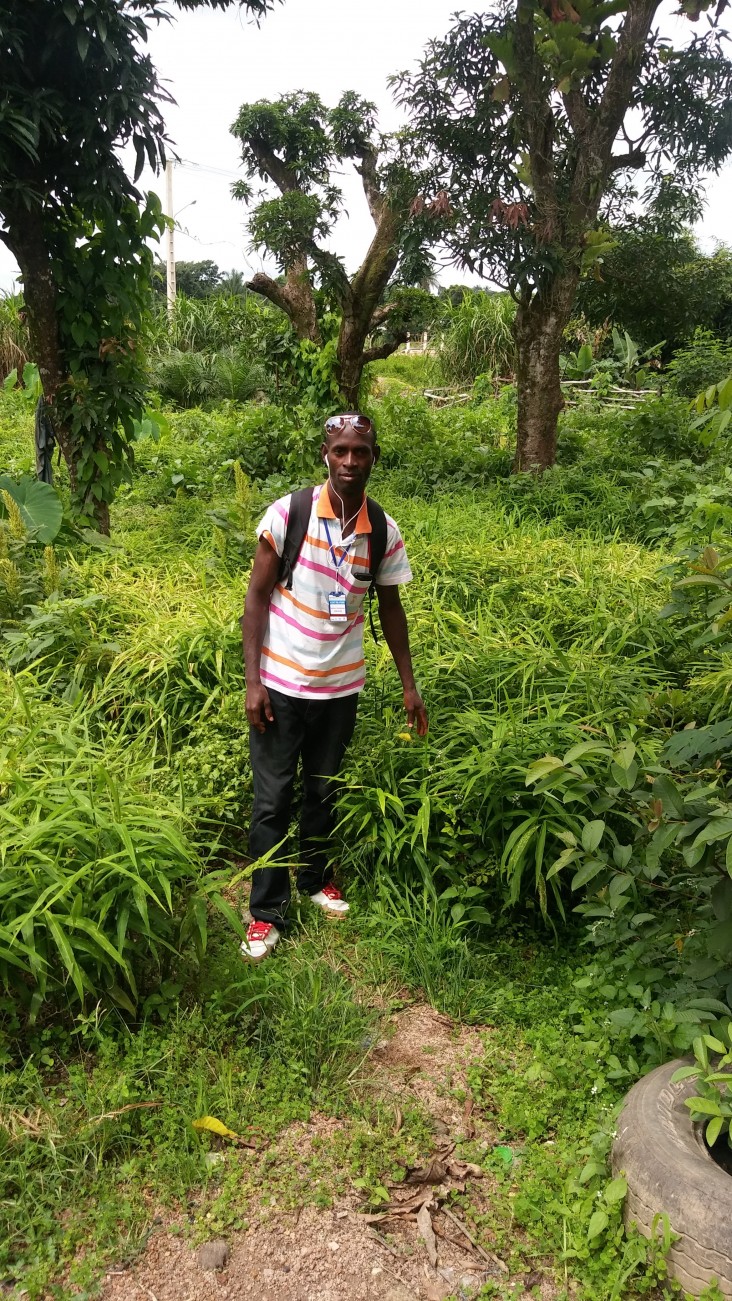Speeches Shim

The agricultural sector remains the niche for creating employment and improving the living standards of the Guinean people. Transforming small-scale agriculture from subsistence to innovative, commercially oriented and modern agriculture will achieve the aim of offering multiple livelihoods and creating employment opportunities for many youth in search of their first employment in Guinea.
Sandaly Kourouma is an agricultural extension agent specializing in ginger production in the prefecture of Faranah in east-central Guinea. After studying rural engineering at the Institut Supérieur Agronomique et Vétérinaire de Faranah (ISAV) in 2012, he began helping his father on the family farm since he could not find a job.
“My father owns a small farm that can barely support the family. And since I could not find any job I had to help out on the farm” says Kourouma.
He depended on his family for everything. So, his father decided to give him a portion of the family land for him to farm on and use the proceeds to help himself.
Kourouma planted cassava just like on the family farm. But because the yields were always very low, he abandoned the farm out of frustration and became idle. “I used to spend much of my day in a café discussing about sports, politics and the lack of employment opportunities for youth in the country” he said.
In 2018, Kourouma applied for the AVENIR program, a component of the USAID-funded Guinea Agricultural Services project. He was among the third cohort of 50 young people who attended the four-week training to learn better farming practices. He is now receiving eight months of practical training at an agricultural counter with a pepper producer in Faranah.
By applying the new farming techniques and business management skills he learnt from the training, Kourouma has improved production on both his and the family farmlands and has learnt to manage his money. “Now, with what I earn from my land, I am improving my life. I am planning to get married very soon” he announced.
“Before, we used to harvest about 25 (100 Kg) bags of cassava on the family land. We expect to harvest up to 40 bags at the next harvest” Kourouma continued.
Kourouma has changed his farm produce from cassava to ginger on his portion of land. But his plan is to start a big business in agriculture after the last phase of the AVENIR program which includes the CAPSTONE training: learning how to make business plans, find partners, and finance and manage enterprises. “I want to start producing and selling pepper because it is very profitable here and I am committed to becoming a big business man soon” he added.”
By strengthening the resilience of vulnerable households and communities through educating smallholder farmers on better agricultural practices, USAID is helping to build the path towards self-reliance in Guinea.
The Feed the Future Guinea Agricultural Services (GAS) project, which ends in October 2019, aims to train over 600 young graduates in order to improve rural and agriculture-based livelihoods as well as improve nutrition.

Comment
Make a general inquiry or suggest an improvement.